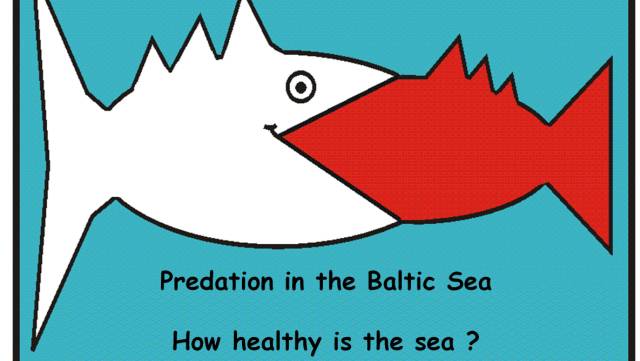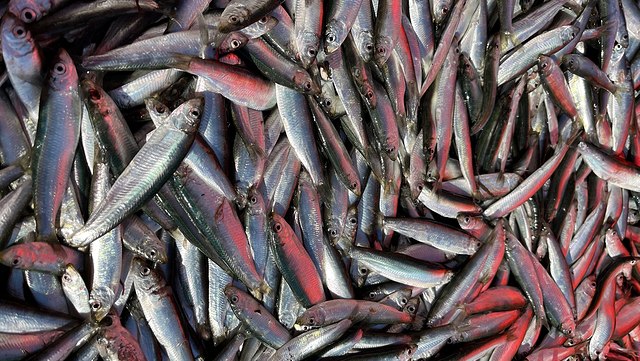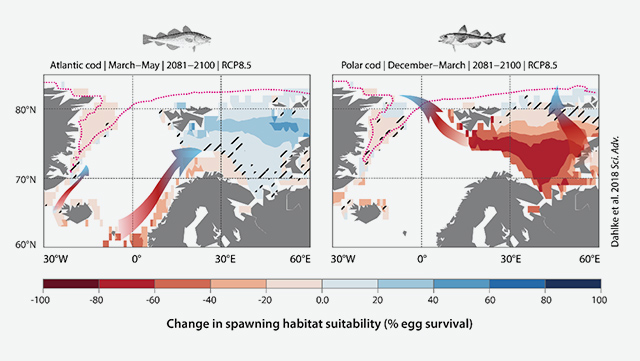Master Marine Ecosystem and Fisheries Sciences
The Master of Science in Marine Ecosystem and Fisheries Sciences is set up as a consecutive and research-oriented degree program. Graduates will have learned the practical and theoretical methods of the research fields of Biological Oceanography (BO) and Fisheries Science (FS) and will be able to apply them in laboratory, field and theoretical studies. Students will possess the ability to develop scientific hypotheses through problem analysis and are able to select approaches to best test these hypotheses. Graduates will be familiar with the current discourse on anthropogenic effects on marine ecosystems and, with their professional knowledge, will be able to contribute to social debates regarding the management and conservation of ocean ecosystems and living marine resources. Consequently, graduates will be in a position to excel in a future scientific career and contribute to the assessment and management of the status of ocean ecosystems.
Application
Application for the Master of Science program in "Marine Ecosystem and Fisheries Sciences"
The application period is running from Februrary 15th until March 31st. You can start your application online via STiNE.
For further infromation please check our Special Conditions of Admission (PDF)
General information regarding the application process are available here: CampusCenter.
Who can apply for this master?
For the Master of Science Marine Ecosystem and Fisheries Sciences, the following special conditions for admission must be fulfilled:
1. A Bachelor’s degree in " Marine Ecosystem and Fisheries Sciences" from the Faculty of Mathematics, Informatics and Natural Sciences at Hamburg University
or
2. Any other Bachelor’s degree, provided that at least 81 ECTS (credits) of foundational coursework in the natural sciences have been proven to have been completed in the following disciplines:
| Mathematics (incl. Physics and Bioinformatics, if available) | 6 ECTS |
| Chemistry (General-, Inorganic-, Organic-, Physical-, and Bio-chemistry) | 6 ECTS |
| Statistics | 9 ECTS |
| Biology (incl. Biological Oceanography and Fisheries Sciences) | 60 ECTS |
3. All applicants must have adequate English language skills.
Adequate language proficiency may be proven as follows:
a) CEFR/TELC - B2
b) IELTS - 5.0
c) TOEFL - (IBT 80, PBT 500, CBT 170)
d) Cambridge - FCE, CAE, or CPE
e) Degree in an English-language Bachelor's degree programme
f) Higher education entrance qualification for an Anglophone institution in the higher education sector
g) Exchange of at least 6 months in an Anglophone country
h) English classes at a state school in Germany over seven years are equivalent [wenn im Abi-Zeugnis Englisch als erste Fremdsprache aufgeführt ist, reicht dies als Nachweis aus]
Which documents do I need for a successful application?
You have to submit the following documents to apply for a place on this Master's degree program:
Application form:
You have to fill in the form online via STiNE. No hard copies are needed. Please upload all needed documents.
- The online application portal is open from February 15th until March 31st: www.stine.uni-hamburg.de .
Applicants who have finished their undergraduate degree before March 31st have to send the following documents in addition to their application form:
- Certificate of their Bachelor's degree.
- In the case that modules, courses and examinations are not listed in the certificate you have to add a „Transcript of Records“.
- Language certificate (CEFR/TELC, IELTS, TOEFL, Cambridge).
- Certificate of additional qualifications relating to the Master's degree program.
Applicants who are in the final stage of their Bachelor's degree program without a certificate of their Bachelor's degree, have to send the following documents in addition to their application form:
- An official „Transcript of Records“ where modules, courses and examinations are listed and a preliminary overall grade has been given.
- Applications can only be considered if you can prove that you are able to complete your Bachelor's degree until the end of the first semester of the Master "Marine Ecosystem and Fisheries Sciences" while studying the modules provided for the first semester of the Master "Marine Ecosystem and Fisheries Sciences".
- Language certificate (CEFR/TELC, IELTS, TOEFL, Cambridge).
- Certificate of additional qualifications relating to the Master' degree program.
If you have any questions
For questions concerning the application please contact Dr. Nicole Funk.
For questions concerning the Master program please contact Prof. Dr. Christian Möllmann.
Welcome Week
There will be a general Welcome Week for all new international students organized by PIASTA.
Furthermore we will offer all new students of the Master's degree program "Marine Ecosystem and Fisheries Sciences" a special Welcome Program (PDF).
Degree course scheme

1. Semester
Compulsory Modules:
i-MARSYS 1
Introduction to Biological Oceanography and Fisheries Science
Lecture, seminar
i-MARSYS 2
Biodiversity of Marine Life
Lecture, seminar, lab course
i-MARSYS 3
Data Handling and Visualization
Lecture, excercise
2. Semester
Compulsory Modules
i-MARSYS 4
Advanced Biological Oceanography and Fisheries Sciences
Lecture, seminar
i-MARSYS 5
Data Analysis and Modelling 1
Lecture, excercise
Compulsory Elective (part 1 - one out of two)
i-MARSYS 6a
Marine Ecosystem Dynamics and Management
Lab course
i-MARSYS 6b
Fish Biology and Population Dynamics
Lab course
3. Semester
Compulsory Elective (part 2 - one out of three)
i-MARSYS 7a
Plankton Ecology and Evolution
Lab course
i-MARSYS 7b
Dynamics of Marine Food webs: Zooplankton-Ichthyoplankton Coupling
Lab course
i-MARSYS 7c
Advanced Marine Ecosystem Modelling
Lab course
Compulsory Modules:
i-MARSYS 8
Environmental Policy and Management
Lecture, excercise
i-MARSYS 9
Data Analysis and Modelling 2
Lecture, excercise
4. Semester - Master Thesis
Master Thesis
Requiremens: you can only register/sign up for your master thesis, if you have successfully passed all compulsory elective modules and i-MARSYS 9.
Examiner
On 1 October 2025, the examination board established the following minimum requirements in accordance with §12 of the Master's examination regulations:
- One examiner has be a professor or habilitated member of the Department of Biology and play a significant role in the Master's programme in Marine Ecosystem and Fisheries Sciences.
- The other examiner has have at least a doctorate.
- Examiners with a doctorate in the department and scientists from other departments/faculties or universities and non-university research institutions without teaching duties in accordance with §64 HambHG must apply for examination rights themselves before registering for the Master's thesis (link to the application). This also includes doctoral graduates who work in companies.
- Examiners with a doctorate in the department and scientists from other departments/faculties or universities and non-university research institutions with teaching duties in accordance with §64 HambHG can be entered in the registration form without applying. In case of doubt, this must be proven by an entry in the respective course catalogue.
-> Master thesis registration form
To register, fill out the form above, send it to the supervisor of your thesis by email and have it signed. When you get the signed form back, you can send it to an exam manager at the Academic Office Biology. You will then receive an email asking you to confirm the submission date (as stated in the email). Only then your thesis will be registered.
There has to be 900 working hours (5 months) between the beginning and the submission of the master thesis. You have six months to complete your Master's thesis.
The master thesis usually consists of:
- a (short) theoretical introduction to the topic, including development of a research concept with the supervisor of the thesis
- a 3 to 4-month experimental treatment of the topic in a research group (see below), as well as
- the written documentation, evaluation and interpretation of the results according to the rules of good scientific practice in a master thesis, and
- the oral presentation of the thesis / defence of the thesis with the examiners of the thesis or in an advanced seminar (exam-form).
Submission
To submit your thesis on time, please send us an email with your thesis as a PDF file in the attachment. The maximum size is 20MB. If your file cannot be reduced below this size, please contact the Student Office. The date of the ticket counts as the submission date of the thesis. Even within the submission deadline, you can only submit the thesis once! Therefore, make sure that you submit the correct version. We do not need a printed copy.
Good Luck!
Study office - opening hours
Office hours (no appointment needed):
Tuesday and Thursday from 10am to 12pm
Tuesday from 2pm to 4pm
or by arrangement.
Deviating office hours are specified on the website of the respective staff member. Please check their availablity before you come by.
Or you can use our contact form at any time:
student contact form
Examination regulations
Career perspectives
Graduates will, based on their broad interdisciplinary and integrative university training, qualify for a broad range of career opportunities. They can, for example, pursue a career in research, starting with a PhD, to be subsequently employed in responsible and leading positions at universities, academic and non-academic research institutes and business companies in the field of biological oceanography and fisheries sciences.
Other promising job opportunities can be found in management, consulting, policy and communication in federal ministries, governmental and non-governmental organisations, pisciculture or other marine biology business companies. Positions in research funding organisations, scientific journalism, ocean ecosystems protection, intellectual property rights, pisciculture associations, or international organisations such as the EU represent additional employment possibilities.
Graduates will be able to contribute social debates regarding the management and conservation of ocean ecosystems and living marine resources at various integration levels in the areas of fundamental and applied biological oceanography and fisheries sciences. In addition, due to their profound expertise and broad proficiency, graduates can also strive for employments in all other prominent areas of Life Sciences.




